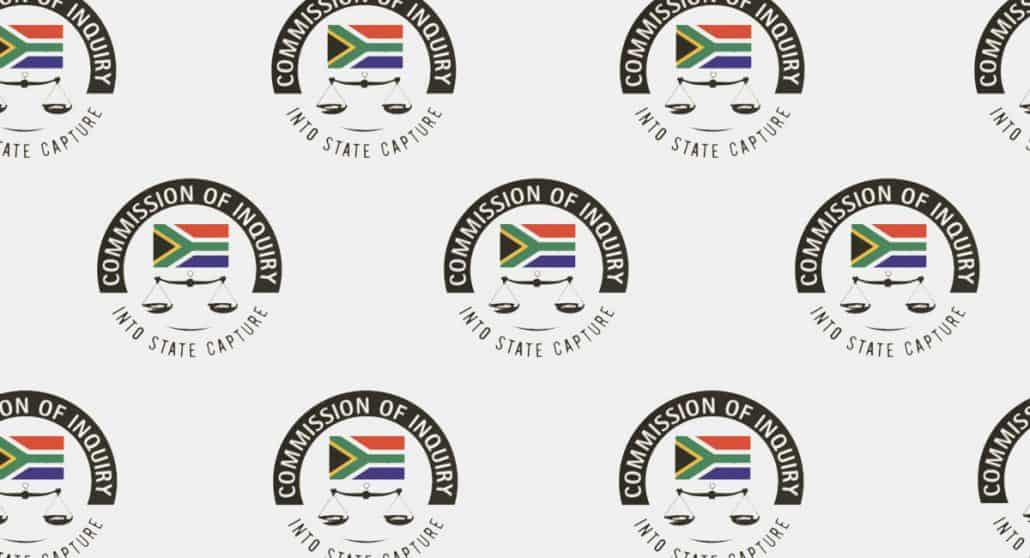In our last Zondo Commission overview, we reported that Deputy Chief Justice Raymond Zondo was due to deliver his decisions on the various applications to cross-examine witnesses.
Ajay Gupta and his brother Rajesh, Duduzane Zuma, Fana Hlongwane, former public enterprises minister Lynne Brown, former presidential chief of staff Lakela Kaunda, Advocate Mandla Mtolo, and Major-General Zinhle Mnonopi of the Hawks had all applied for permission to cross-examine the witnesses who implicated them in state capture shenanigans.
All but Lynne Brown and the Guptas were granted permission, the latter because they were not prepared to travel to South Africa to cross-examine in person. The family tried to impose conditions under which they would appear, but these were dismissed by Zondo, as was their application.
Ajay and Rajesh Gupta will have to return to South Africa if they wish to cross-examine witnesses or give evidence, Zondo ruled. He said the reasons for the Guptas’ request to be cross-examined outside of the country were invalid and unlawful.
Brown will not be allowed to cross examine her former cabinet colleague Mcebisi Jonas, because she had not given her version to refute that of Jonas. In dismissing her application, Zondo said Brown was welcome to re-apply at a later stage.
South Africa and the United Arab Emirates (UAE) have since signed a mutual legal assistance and extradition treaty. Although this is no sudden decision – negotiation between the countries have been in progress since around 2010 – the timing is fortuitous for South Africa as far as state capture is concerned.
Minister of international relations and co-operation, Lindiwe Sisulu, said that South Africa had wanted an extradition treaty with UAE in any case, but the process had been accelerated.
“Quite frankly we would want the Guptas back. We think it’s the right thing to do and we would like the UAE to assist us to do the right thing,” Sisulu said in an interview.
Banks under pressure over Gupta account closures
Then it was the turn of the four major banks to give testimony on their experiences with the ruling party after they closed the Guptas’ bank accounts, because the family posed a reputational and business risk for the financial services providers. Without exception, they recalled that the ANC had tried to question them on their reasons for closing the Gupta accounts, which none of them was prepared to discuss because of client confidentiality principles.
Representatives from FNB, Absa, Standard Bank and Nedbank said they were asked to meet with ANC officials at Luthuli House – which the latter three agreed to do – where attempts were made to persuade them to reverse their decision. FNB refused to attend and their meeting was cancelled.
“In my 32 years in banking, it was my first time ever receiving a request from a political party or an inter-ministerial committee wanting to discuss banker-client relationships,” said former FirstRand CEO Johan Burger.
At a later stage, by which time an inter-ministerial committee had been established to investigate the matter, the banks were again called to a meeting with the committee this time. Nedbank CEO Mike Brown said that at the end of his meeting, former mineral resources minister Mosebenzi Zwane – who was chairing the committee – made a comment that surprised him. “He was dissatisfied with the other banks having refused to meet with government, and said it was funny given that it was government that issued banking licenses in the first place.”
Brown added that Zwane was mistaken in that it is the South African Reserve Bank, an independent institution in its own right – and not government – that is responsible for the issuing of banking licenses.
Jacob Zuma not bothered by Mentor, Maseko
In the meantime former president Jacob Zuma, who had been asked by Zondo to submit his version of events in an affidavit, said he was prepared to co-operate with the commission but because he had opted not to cross-examine witnesses, his decision was interpreted as non-co-operation.
Zuma had been implicated in allegations made by former ANC MP Vytjie Mentor and former government communications head Themba Maseko in their testimonies given in August.
Zuma had previously submitted that he did not find that either testimony implicated him directly, and was therefore not going to make an application to give evidence or cross-examine the two.
Leaked Gupta e-mails now part of the evidence
Then, on Thursday 27 September the commission’s legal team, led by advocate Paul Pretorius, submitted an application for the commission to admit the hard drives on which the controversial #GuptaLeaks e-mails reside currently, as part of the body of evidence.
Pretorius further told Zondo that in terms of its mandate, the commission is bound by a responsibility to investigate the contents of the e-mails in question. He added that it was in the public interest that the e-mails be added as evidence.
The commission got to hear of how the data trove believed to contain over 200 000 e-mails, came to be made available to investigative journalists and later the commission’s investigators. The e-mails were released in mid-2017.
On Friday 28 September Zondo ruled that the hard drives may be admitted as evidence.

